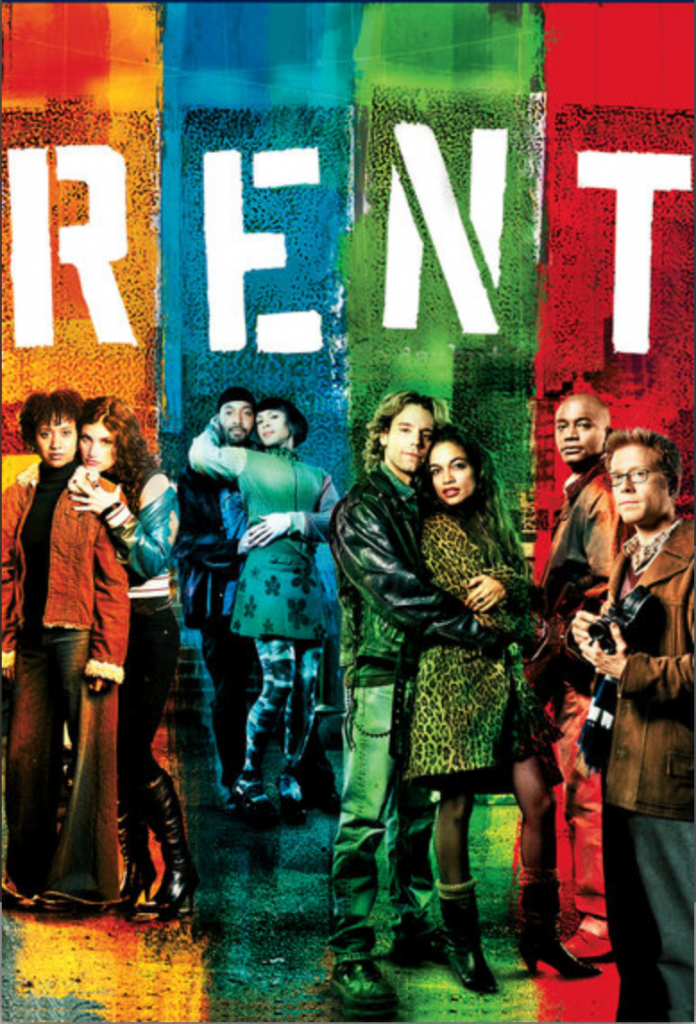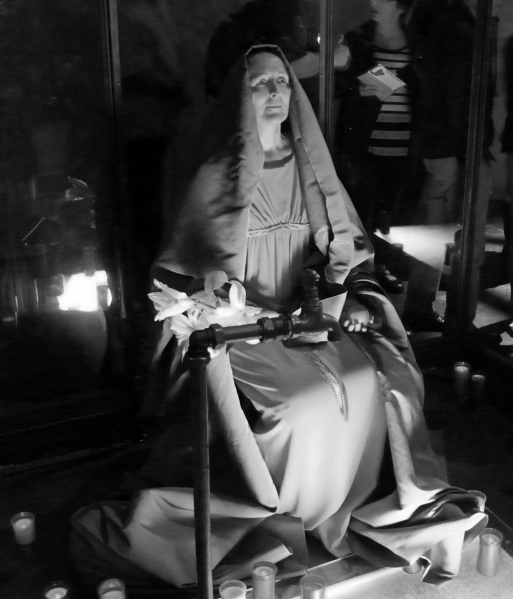 Lately I can’t stop listening to the soundtrack of Rent. I didn’t even like that musical when it first came out, arguably because I was living in the creative ghetto of Manhattan’s Lower East Side amongst a bunch of drug addicts and queens of all genders, and resented what felt like a Disney version of my life. Twenty years later, I adore its cocktail of pathos and joy, which just goes to show you that nostalgia can be generated for anything once it’s passed.
Lately I can’t stop listening to the soundtrack of Rent. I didn’t even like that musical when it first came out, arguably because I was living in the creative ghetto of Manhattan’s Lower East Side amongst a bunch of drug addicts and queens of all genders, and resented what felt like a Disney version of my life. Twenty years later, I adore its cocktail of pathos and joy, which just goes to show you that nostalgia can be generated for anything once it’s passed.
I’m especially moved that, with great heart, this production puts its “Today 4 U” money where its mouth is. Written in the midst of the AIDS crisis, it is based upon many characters who did not survive to see the 21st century, and was written by a young man who, because of a genetic syndrome, knew that he would not. Now that I’m of an age when my peers and I daily live with mortality as a reality rather than a fantasy, I appreciate Rent’s carpe-doomsday aesthetic, even if it does come with jazz hands. I sing selections from its soundtrack all the time. “Light My Candle” as I clean; “Life Support” as I drive; “Seasons of Love” as I cook; “Will I” as I pay bills; “Santa Fe” as I walk block after NYC block; “Take Me or Leave Me” as I paint. Often I weep as I sing, but it’s not unhappy weeping. It’s that my-joy-and-sorrow-connects-me-to-the-universe sort of weeping. It’s weeping along the lines of that Stella Adler quote: Life beats down the soul and art reminds you that you have one.
At the same time I’ve become a ’90s musical enthusiast, I can’t stop painting and wallpapering things. This began when I commenced my home rehab last fall. I’d always feigned the vapors when anything had to be fixed around my rent-stabilized apartment, either Tom Sawyering an innocent bystander or, more than often than not, ignoring the problem entirely until it toppled on my head. (That really happened once; a badly installed ceiling lamp fell on my bed just as I was going to town on a long-lashed lover.) I think I assumed–feminism be damned!–that eventually I’d be married or moneyed, and so would be able to permanently fob off those handyman tasks or just move somewhere grander. But after last fall’s final break from a man I deeply love, I accepted my life might always be white steed-free. So I rolled up my sleeves and commenced to finally fix up this fix-it-upper—to divest and plaster and sand and paint and forage. You know, that Marge Piercy quote: Bless whatever you can with eyes and hands and tongue. If you can’t bless it, get ready to make it new. Continue Reading →

